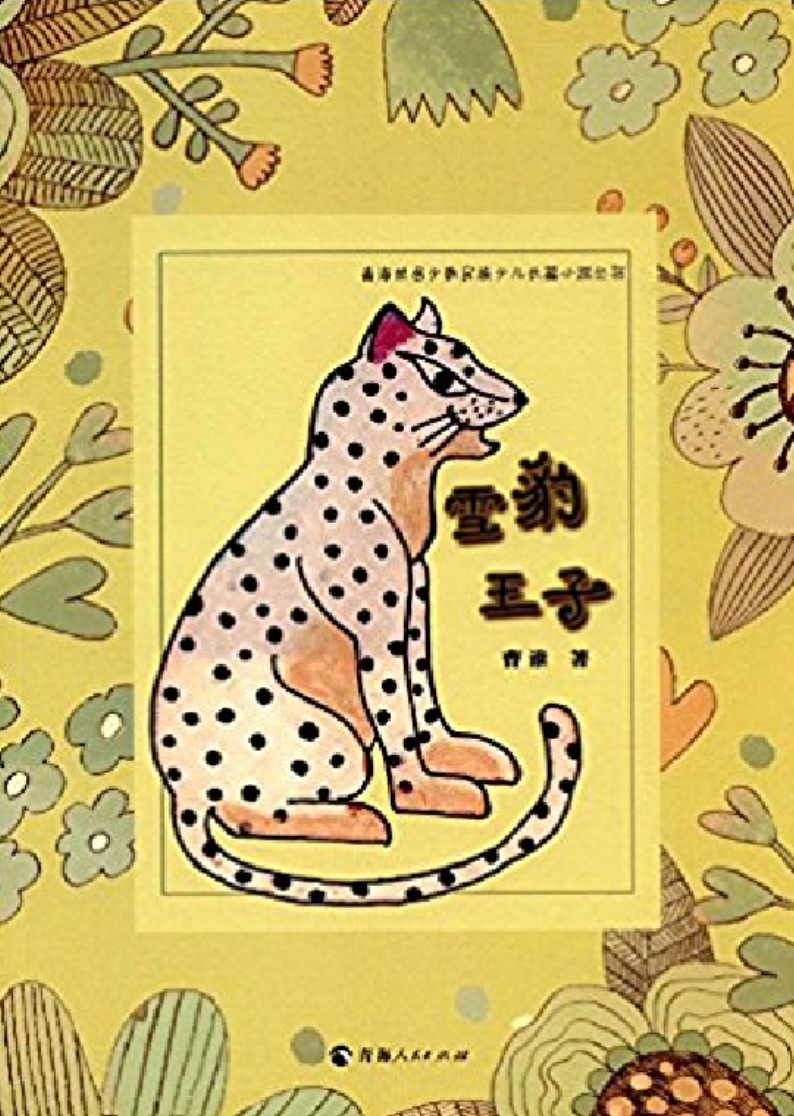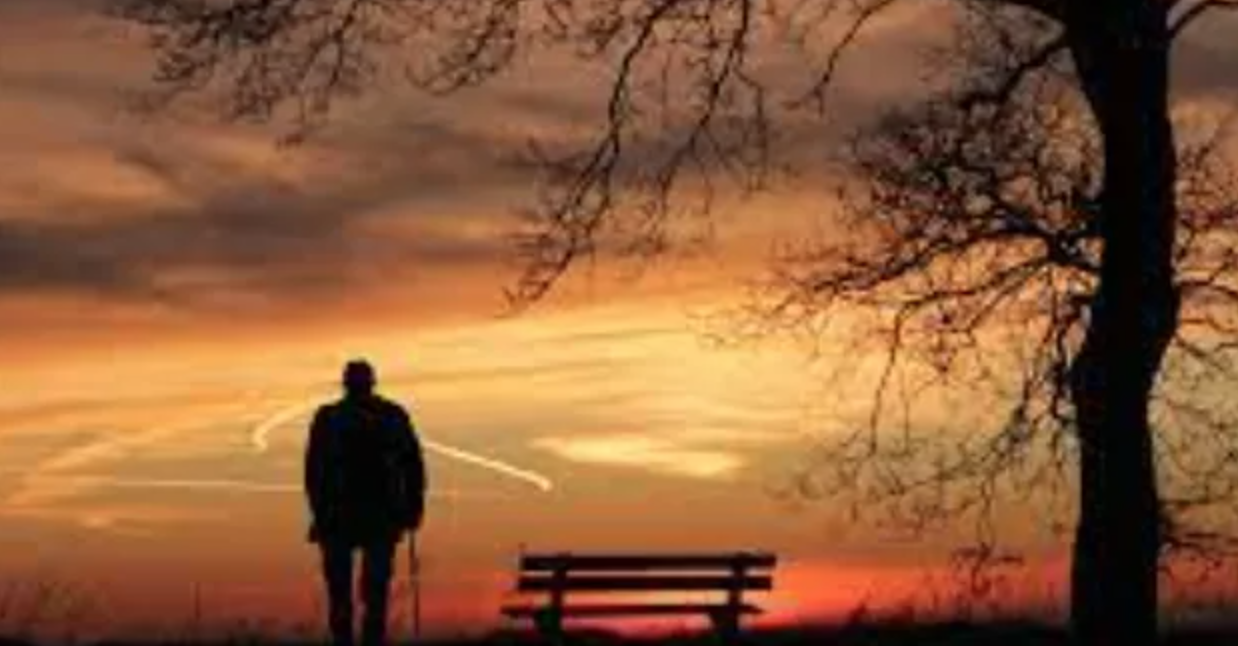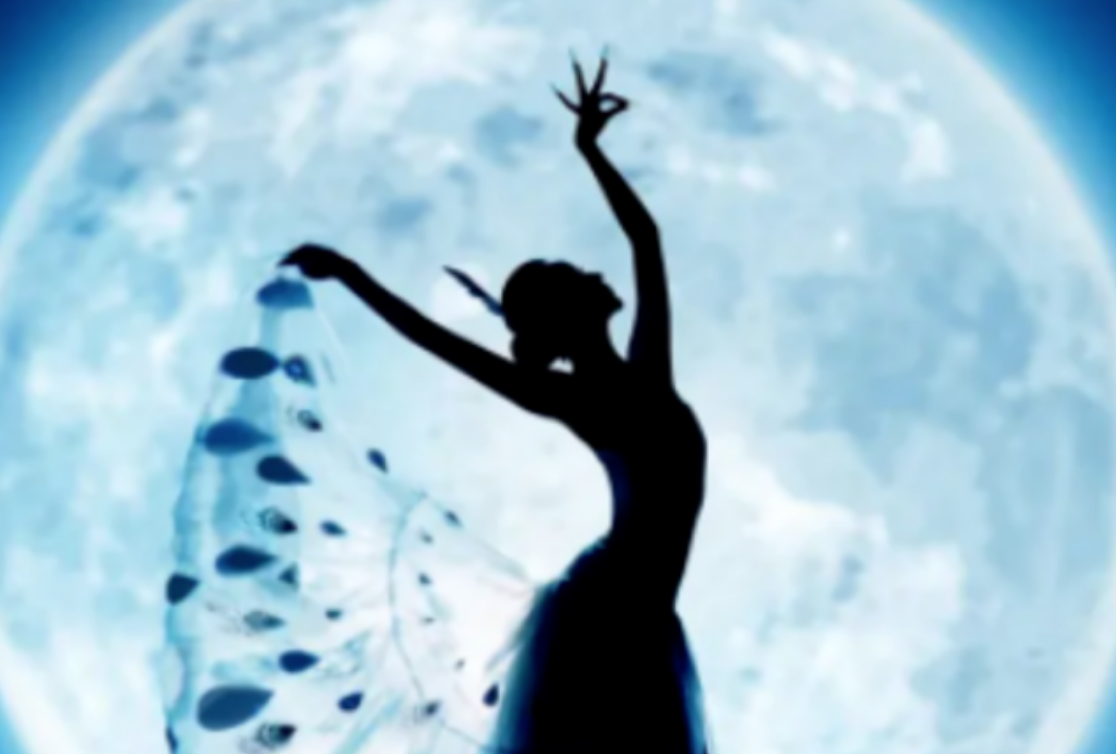Interview With Cao Shui Who Talks About His Book “The Three Yak Sisters”
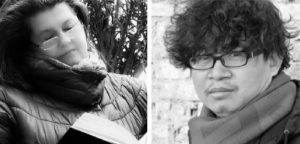
MARIA CRISTINA BUOSO and CAO SHUI
MC-HI,we are in the company of Cao Shui who will talk to us about his new book. I’m happy to chat with you again, can I ask you how you are and what good things have you done since our last meeting?
(https://mariacristinabuoso.blogspot.com/2022/11/tisana-con-chu-quang-manh-thang.html )
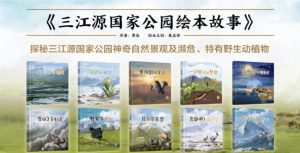
CS:Hello, Maria! Last time we had in-depth communication. Since the last chat, I have published 21 books this year. In addition to the Three Sisters of Wild Yaks, there are also 10 fairy tales “Stories of Three Rivers Source National Park”, 6 fairy tales “Hoh Xili Animal Kingdom”, an Italian poetry collection “Epic of Eurasia”(Excerpted edition), an Italian essay “A Brief History of Modern Chinese Poetry”, a prose collection “The Odessey in Kunlun Mountain “, a translation poetry collection “Song of the Dream Land”(Fernando Rendon), etc. Some of these books were previously written and will be published this year. I have participated in or organized the 4th Silk Road International Poetry Festival, the 6th Boao International Poetry Festival, the 1st Beijing International Poetry Film Spring Festival Gala, and the 22nd Homer International Poetry Festival. I am currently preparing to participate in the 34th Medellin International Poetry Festival. I have also won literary awards such as the Ichchasa Sahitto Paribar in Bangladesh, the Boao International Poetry Award, the Silk Road International Poetry Award, and the Yangtze River Poetry Award, etc. In short, it is the life of a writer, writing, publishing, winning awards, and literary activities.
MC – How did the idea of writing this book come to you?
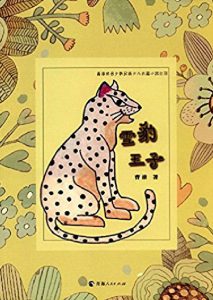
CS:I went to Keh Xil in 2016 and wrote the novel “The Snow Leopard Prince”, which was also adapted into a drama “The Snow Leopard Prince”. During this process, I learned about many magical animal stories in the local area and wrote a non fiction work called “Keh Xil Animal Kingdom”. These stories have been remembered in my heart until last year when Jianghe Electronics Publishing House wanted to publish a set of fairy tale, so I wrote these six stories. Fiori Picco, after reading these magical stories, translated them into “The Three Yak Sisters and other stories of the Hoh Xil Kingdom”, making this book appear in the Italian fairy tale kingdom. The reason why the book is named after the Three sisters of the Wild Yak is because she believes that this story will be most attractive to Italian readers.
MC – Can you briefly tell us what it’s about?
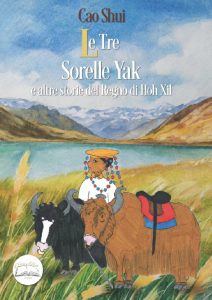
CS:This book is about the magical stories of six animals in Keh Xil, each with a particular animal as the protagonist, describing the legend of an animal, reflecting a social virtue, and overall reflecting the ecological situation in Keh Xil. The theme of Three Sisters of Wild Yak is love and reconciliation. The theme of “Snow Leopard Prince” is revenge and gratitude. The theme of “The Tibetan Antelope Guard” is sacrifice and unity. The theme of “Marmot Bar” is wisdom and protection. “The Turquoise of the Tibetan Donkey” is about patience and fatherly love. The theme of “Beauty Bear” is love and honesty.
MC – Why did you choose this title?
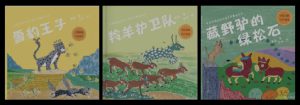
CS:The six titles of these six books summarize the six stories. Three Sisters of Wild Yak tells the story of reconciliation among three sisters of wild yak after misunderstanding. The Snow Leopard Prince tells the story of the Snow Leopard Prince Qiangba regaining the throne of the Keh Xil Animal Kingdom. The Tibetan Antelope Guard tells the story of Tibetan antelopes escorting female Tibetan antelopes to migrate and give birth. The Marmot Bar tells the story of a marmot using its intelligence to protect the daughter of a mountain god. The Turquoise of the Tibetan Donkey tells the story of the Tibetan Donkey Laba controlling the weather to protect the mother donkey from giving birth. Bear Beauty tells the love story between a mother brown bear and a pair of brothers. These stories are all very interesting.

广告 | Advertisement
在澳纽网做广告 | Advertise with us
MC – Why did you choose this place to set the stories and why exactly the Qinghai-Tibet plateau. What is special about it?CS:The Qinghai-Tibet Plateau is the third pole in the world, with many similarities in climate to Antarctica and the Arctic. Keh Xil is located in the center of the Qinghai-Tibet Plateau, with an altitude of over 4000 meters. Surrounded by snow capped mountains, it is known as the “forbidden zone for humans”, but it is also a “paradise for animals” with many unique local animals. As I mentioned earlier, I wrote “The Snow Leopard Prince” here in 2016. Here, I learned about many legendary animal stories through the Gata in Three Rivers Source National Park, which opened my fairy tale series. I have now worte 18 fairy tales, including 10 stories in “Stories in Three Rivers Source National Park” and 6 stories in “Animal Kingdom in Keh Xil”, all set in Keh Xil. Overall, they can be named “The Story of Keh Xil Animal Kingdom”.
MC – The peculiarity of this book is that the subjects are animals, not people, why this narrative choice?
CS:Animals, like humans, have souls. From the perspective of human evolution, they are our cousins. They also have their own feelings, their joys and sorrows. This is the idea I came up with after learning about the legend of animals in Keh Xil. So I want to endorse the animals in Keh Xil and tell their stories to Chinese children. Now Fiori Picco has translated them into Italian, and the young painter Asia Picco Zhao has painted exquisite and unique illustrations. I am very happy that Europeans can also understand their stories. In the process of writing, I usually use the legends of each animal I hear in Keh Xil to tell the virtues of human society, hoping that children can gain inspiration from them.
MC – What message do you want to give with these stories?
CS:I want to use the legends of these animals in the Animal Kingdom of Keh Xil to help children learn about human laws and see the ecological beauty of Keh Xil through stories. In 2017, Keh Xil also became the 51st UNESCO recognized World Heritage Site applied for by China. Here is also the earliest and largest Three Rivers Source National Park in China, and 10 books of “Stories of Three Rivers Source National Park” are also part of the Three Rivers Source National Park project. These are also 10 beautiful stories published by China Map Publishing House this year. I hope these stories can also be translated to Italy, so that Italian children can read these new Eastern legends.
MC – Would you like these stories to become a cartoon movie one day?
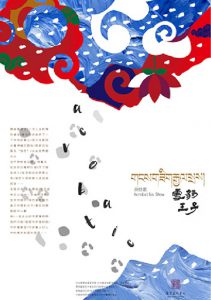
CS:I certainly hope these stories can become cartoon movies, in fact, since I wrote “The Snow Leopard Prince”, I have already started the process of adaptation. At that time, this novel was adapted into a stage play. Now is the era of cinema, and I have this literary perspective: from the lyrical literature era dominated by poetry in the agricultural era, to the narrative literature era dominated by long novels in the industrial era, and to the dramatic literature era dominated by movies in the information age. Many of my books are being adapted into movies, TV dramas, and various plays. Recently, the Xining Municipal Government is preparing to use the snow leopard as its urban image, so the local government is also planning to adapt the cartoon movie or TV series of “The Snow Leopard Prince”. The cartoon film adaptation of “Adventure of Pinocchio” written by Italian author
Carlo Collodi has spread throughout the world, and we hope to collaborate with Italian directors in the future to adapt a cartoon film. There is an interesting thing about Pinocchio: my nose is quite tall, so I was nicknamed “French Big Nose Hero”. Later, because Pinocchio’s Chinese translation includes my surname Cao, which is similar to Pinocchio’s long nose, I was given the nickname “Pinocchio”.
MC: Talking about fiction, what kind of books do Chinese children and teenagers read?
CS:Chinese children often read fairy tales, written by Chinese writers, such as Cao Wenxuan’s “Grass House”, Zheng Yuanjie’s “The Story of Pipilu and Lusisi”, Shen Shixi’s “Dream of the Wolf King”, and so on; They also read Western fairy tales, including Italian author Calvino’s fairy tales, German Grimm’s Fairy Tales, Danish Hans Christian Andersen’s fairy tales, British author J.K.Rowling’s Harry Potter, and so on. Chinese children also love to watch cartoon movies produced by Hollywood Disneyland and Japanese cartoons. Chinese cartoons are developing and require more good cartoon movies.
广告 | Advertisement
在澳纽网做广告 | Advertise with us
MC – Is there anything you would like to add?
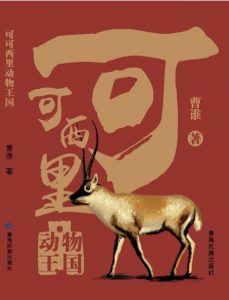
CS:Keh Xil is a magical animal paradise, where I have heard many legendary stories. Their stories, like the Epic of Gesar, are constantly evolving and can write countless fairy tales. I am currently writing 6 fairy tales of “Keh Xil Bird Kingdom”, 6 fairy tales of “Keh Xil Plant Kingdom”, and 6 fairy tales of “Keh Xil Fish Kingdom”. I will also complete them as planned this year and next year, and they will be published by Jianghe Electronic Publishing House. Fairy tales are a reflection of human innocence, and they are also an important part of me. In the future, I will also create a series such as “World Odessey of Eurafrasia”, hoping to tell Chinese fairy tales to all children in the world. (End)
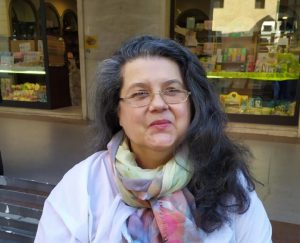
Biography of MARIA CRISTINA BUOSO
She wrote her first works when she was very young, starting with fairy tales and poems as she grew up expanding her writing with short stories, scripts, novels, detective stories, thrillers and more.
The poem “Help me” was included in the multimedia anthology “A poem for Telethon “, for charity (2004). The poem “Peace in War” in the competition organized by ALIAS (Melbourne – Australia), received the Honorable Mention. The poem “Bugie” (Stones of Angles ) was included in Vol. 6 – In Our Own Words : A Generation Defining Itself – Edited by Marlow Perse Weaver USA (2005). She won the third prize in the Joutes Literary Competition Alpines “of the Association rencontres Italie Annecy (France) for the Section Prose (Italy) with the story “The old album” (1997).
These are just some of the various awards she has received in the past and some of her works have been included in anthologies.
Recently (September 2022) she was awarded by Fiori d’Asia Publishing House of the Certificate of Collaborator of the China Writers Association and the Chinese Literature Readers Club, for her commitment in promoting Chinese culture trough her blog https://mariacristinabuoso.blogspot.com/ , together with Fiori Picco, with whom she has been collaborating for some years.
Since January 2023 she has been one of the authors who write on Alessandria today Magazine – Pier Carlo Lava. https://alessandria.today/
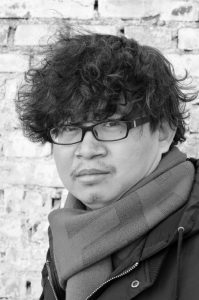
Biography of Cao Shui
Cao Shui(Chinese: 曹谁;pinyin: Cáo Shuí), also Shawn Cao (born in Jun 5, 1982), is a Chinese poet, novelist, screenwriter and translator. He is a representative figure of Chinese Contemporary Literature. He leads the Great Poetry Movement, Poetry Film Movement and Dramatizing Fiction Movement. In his “Manifesto of Great Poetry”, he aims to integrate sacred and secular cultures, oriental and occidental cultures, ancient and modern cultures in Chinese literature. In 2008, he resigned from a newspaper and traveled around Tibet and Xinjiang, which is the center of Eurasia or the World in his view. His novels Secret of Heaven trilogy tells the whole developing history of human civilization. His most notable works includes Epic of Eurasia, the already mentioned trilogy and King Peacock (TV series). In his works, he extracts elements of various ancient human civilizations, from Babylon to the west to Judea, Egypt, Greece, to the east to Persia, India, China, and uses these elements to reconstruct a new Utopian human homeland, which always described as Eurasia, the Top of the Tower of Babel or Kunlun Mountains (Heaven Mountains). So far fourty books of Cao Shui have been published, including ten poem collections, four essay collections, ten novels, twenty fairy tales, four translations and one hundred episodes TV series and films. He has won more than 50 literary awards worldwide, including the 1st Chinese Young Poet Award, the 4th Cao Yu Cup Drama Award, the Apollo Dionysus Award of the 8th Italian Rome International Academy of Contemporary Poetry and Art Award, the 12th Russian Golden Knight Award, and the Top Ten Public Figures of the 5th Chinese Poetry Spring Festival Gala, etc. His works have been translated into English, Italian, Spanish, French, German, Swedish, Portuguese, Danish, Polish, Russian, Hungarian, Croatian, Slovenian, Turkish, Arabic, Japanese, Korean, Hindi, Nepali, Vietnamese, Greek, Bengali, Kazakh, etc. He has been invited to participate in the 30th Medellin International Poetry Festival, the 26th Havana International Poetry Festival, the 14th Kritya International Poetry Festival in India and the 4th Qinghai Lake International Poetry Festival. He is a member of China Writers Association, China Film Association and China Poetry Society. He is also chief editor of Great Poetry, deputy editor in chief of World Poetry, member of China Writers’ Association, member of World Poetry Movement, secretary general of Boao International Poetry Festival and executive president of the Silk Road International Poetry Festival. Currently he lives in Beijing, and works as a professional writer, translator and screenwriter.

新西兰 澳纽网出品
编辑:卫宏图
广告 | Advertisement
在澳纽网做广告 | Advertise with us
712 views


